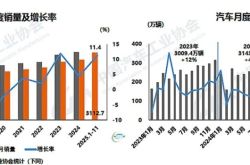The Best Era of Pinduoduo Has Passed
![]() 01/10 2025
01/10 2025
![]() 778
778

Pinduoduo needs self-correction.
Author | Jia Siwen
Editor | Yang Zhou
Since the dialogue between Duan Yongping and Pinduoduo at Zhejiang University, many have once again focused on the issue of merchant relations on the platform. Some believe that the platform exploits merchants, while others argue that "one is willing to fight, and the other is willing to endure," indicating that merchants stay because it is profitable.
Technology itself has no values, but Duan Yongping has always promoted the philosophy of "doing one's duty." Responding to external questions, he admitted he did not understand Pinduoduo's internal mechanisms and thus kept his distance from the "exploiting merchants" claim.
However, he has repeatedly expressed respect for Huang Zheng, the founder of Pinduoduo, particularly valuing his non-pure profit-seeking mindset. Nonetheless, people still wonder why a company born to "let the poor sell insurance to the rich" has repeatedly fallen into the vortex of "large-scale merchant protests" in recent years.
Huang Zheng's personal influence has been crucial in the development of Pinduoduo. From his previous quantum mechanics-style thinking to later following Warren Buffett and Duan Yongping, and finally contemplating the "reversed insurance mechanism," he has laid down almost all the underlying logic for Pinduoduo.
From the early days of low prices through social fission to the fear of "sudden wealth explosion" upon listing, Huang Zheng repeatedly mentioned the need for ordinary consumers to use online group purchases to conduct "self-organized bulk orders," thereby sharing the benefits of scale.
With this mindset, Pinduoduo's startup approach also has a distinct mark: using a low-price plus social fission model to carve out a new path in a landscape originally dominated by Alibaba and JD.com.
However, after the explosion in scale, Pinduoduo's huge volume and extreme efficiency quickly led to mismatches within and outside the ecosystem.
'The customer is always right' is a classic saying in the retail industry. Under the platform mechanism, such as "lowest price across the entire network," "10 billion subsidies," and "refund only," Pinduoduo seems to be playing the role of "carrying the god on a sedan chair" between consumers and merchants.
But this sedan chair bearer's approach of blindly pleasing the god is leading to an imbalance in the entire platform ecosystem. While consumers enjoy benefits, merchants are pushed to a secondary position, and this tense e-commerce relationship is increasingly apparent.
Many merchants began collective protests last year due to a Pinduoduo platform policy that favors consumers but is harsh on merchants - "refund only."
This policy has extended from the fresh produce sector to other categories. Initially, it did boost consumer confidence and drive order volume and GMV. However, with the rise of the "wool party" (those who take advantage of loopholes), chaos has frequently occurred: once a merchant is labeled as "customer complaints are justified, the merchant bears responsibility," they can easily be swiftly punished in such an efficient machine as Pinduoduo.
Consumers do not need to return goods; they can get a refund with a single click. As a result, a large number of small stores that originally relied on thin margins and high sales volumes are struggling to breathe. Some store owners want to appeal but face various restrictions.
Some people are brazenly taking advantage, even began reselling "refund only" experiences, only teaching methods without assuming responsibility. With the proliferation of such gray industrial chains, the platform's reputation also faces significant risks. Within just one year, regulatory authorities have repeatedly interviewed Pinduoduo, requiring it to rectify the "refund only" policy to avoid imposing unfair burdens on small merchants or industrial belts.
Faced with external pressure and internal hidden dangers, Pinduoduo announced in the second half of 2024 that it would comprehensively upgrade merchant rights protection.
Against this backdrop, in January 2025, Zhao Jiazhen, Co-CEO of Pinduoduo, led the establishment of the "Merchant Rights Protection Committee," providing more appeal space for merchants regarding abnormal orders and malicious complaints. It also attempts to correct the previous attitude of "defaulting to the user being right and the merchant having to bear it."
Although the improvement measures seem quite strong, after multiple interventions at the regulatory level, public trust in Pinduoduo has not immediately rebounded because many people are worried: Are these mechanisms genuine means to curb the "wool party" or just a stopgap measure for the platform to respond to public opinion?
After all, when "refund only" was initially launched, the platform also held up the banners of "protecting consumer rights" and "combating counterfeiting and shoddy products," but during implementation, it allowed more imbalances to emerge.
If the current adjustments once again fall into excessive favoritism towards consumers and remain perfunctory towards merchants, merchants will continue to complain in the future.
Deeper down, this is actually a struggle between "platform values" and "maximizing business efficiency."
Huang Zheng once said that when he met Warren Buffett with Duan Yongping, he was most impressed by their understanding of common sense. Duan Yongping himself often talks about "doing one's duty" and "doing what one is supposed to do in one's position." During Pinduoduo's early stage of rapid expansion, this extreme execution and centralized decision-making approach were indeed effective in driving GMV and surging user data. However, once the scale became sufficiently large, the platform was no longer simply matching buyers and sellers but was burdened with huge ecological responsibilities.
In the past, it was not a big deal to "offend" some low-end sellers or counterfeit factories, but now millions of people rely on the platform for their livelihoods. A few years ago, merchants holding babies and pregnant women ran to Pinduoduo's company to protest, just to retrieve the frozen payment for goods that had been judged as "fake," raising higher requirements for corporate social responsibility.
How can the "doing one's duty" mentioned by Duan Yongping or Huang Zheng be applied to handling merchant rights and not just be a slogan?
In his dialogue at Zhejiang University, Duan Yongping said he believes that Huang Zheng is not someone who "deceives people," but this sentence can also be seen as an expectation - hoping that Pinduoduo will not forget its original intention on the fast track of commercialization.
Huang Zheng himself resigned as CEO in 2020 and later handed over the chairman's position to Chen Lei, ostensibly stepping away from the daily operations and management of Pinduoduo.
However, insiders say that the overall direction and key decisions of Pinduoduo still cannot escape Huang Zheng's will from those years, especially his obsession with pursuing efficiency and the potential of the lower-tier market.
This also brings about a tension: Huang Zheng's former concept of "letting the poor sell insurance to the rich" will inevitably encounter the squeeze of diverse social interests after the enterprise enters maturity. To ensure that the interests of merchants and consumers are mutually taken into account, the platform needs to be more inclusive rather than only focusing on data incentives and rapidly increasing front-end business volume.
If in the past it climbed out of the "counterfeit fiasco" on the consumer side and then proved that low prices can also yield good products through "10 billion subsidies," now it is time to reverse the impression on the merchant side of "only knowing consumers and not caring about merchants' survival."
Everyone knows that socialized e-commerce and high-pressure management once made Pinduoduo dominant in the capital market, but without a solid ecosystem as a foundation, staying power will ultimately be insufficient. Overseas long-term expansion also requires a stable domestic foundation. If high efficiency only leads to internal dominance and deprivation, it may ultimately boomerang.
At the same time, major e-commerce platforms suddenly remembered the importance of "low prices" in the second half of 2024, reducing commissions, lowering entry barriers, and optimizing traffic distribution. Taobao lowered thresholds to attract Pinduoduo merchants, followed by JD.com shouting "increase subsidies to boost GMV," and Douyin E-commerce also stepped up the pressure.
A few years ago, everyone said that Pinduoduo was playing the "business beyond the fifth ring road." Now, no one is making surface talk about it but is instead together killing into the lower-tier market, making price-sensitive people a must-win area.
Under the so-called "e-commerce involution" heatwave, merchants gradually have more options. If Pinduoduo cannot come up with a more generous and fairer mechanism on the merchant side, those small and medium-sized stores that once achieved monthly sales of millions on Pinduoduo may also divert more energy to other platforms.
Perhaps for this reason, Pinduoduo has begun vigorously promoting the Merchant Rights Protection Committee and the "10 billion exemption" plan, wanting to show the outside world that it can also become a more friendly business platform.
In this exemption package, advertising promotion fees, technical service fees, deposits, and other aspects have all been discounted. The aspect of "refund only" that merchants criticize the most has also been partially changed in the system. The platform will refund part of the advertising or technical service fees spent on unshipped orders.
At first glance, the platform is sacrificing short-term profits and using tangible resources to help merchants, thereby reducing some of the burdens on the latter in fierce competition. The official announcement claims that this is a long-term plan that benefits both merchants and consumers.
But some people wonder if this is really a vision-driven approach? After all, for the platform to maintain its domestic base, it can ensure that Temu, its overseas arm, has no supply worries and can hedge against the strong momentum of other domestic platforms to seize merchant resources.
Without the thickness of the merchant base, the so-called "GMV first goal" will ultimately only become a loud empty talk.
However, it is worth being vigilant that Pinduoduo's aggressive push in the overseas market with Temu has shown people that it is replicating the same DNA of "human efficiency" and "extremely centralized resource competition" globally.
Temu quickly grabs traffic in North America and even Thailand with extremely low prices and high marketing practices. But for many suppliers, if Pinduoduo still puts on an air of superiority in China, only doing business with users and ignoring the reasonable demands of merchants, then contradictions between merchants and the platform will continue to spread, even affecting the stability of the supply chain.
Another trend worth observing is how far the correction of "refund only" can go.
Pinduoduo has repeatedly mentioned in its statements that it will crack down on malicious refunds, support merchants in appealing against abnormal orders, and emphasized that it will not limit the number of merchant appeals. However, many merchants remain skeptical.
Previously, "refund only" helped Pinduoduo quickly model out an image of "zero risk for consumers," which was a very powerful killer move in e-commerce competition; now, to truly remove this "nuclear weapon" or slightly "control" it, will Pinduoduo lose that wild approach to attracting new users and promoting activity? Will there be "compliance in public and defiance in private" within the platform's mechanism design? These questions still need time to test.
In this dimension, is Pinduoduo still the company that uses rapid growth as the foundation for all assessments? Because many observers are watching: does it want to be a mature large platform that strictly adheres to the balance of the e-commerce ecosystem or continue its extensive and abrupt approach of "only caring about GMV and pressuring merchants whenever possible"?
In fact, from many perspectives, Pinduoduo is entering an inflection point. Externally, it faces the collective siege of competitors from all directions, and internally, it has to deal with the resistance of merchant groups and tightened regulatory policies.
In general, whether Pinduoduo establishes a Merchant Rights Protection Committee or vigorously promotes the "10 billion exemption" plan, it signifies a signal: While the past approach of rapid expansion has indeed brought huge market value and user volume, times are changing, rules are changing, and regulation and industry self-discipline are also changing. No "killer card" can work indefinitely.
Once the broader environment puts forward higher requirements for the e-commerce sector, such as equal emphasis on consumers and merchants, platforms must be responsible for the ecosystem and must not provoke extreme unfairness... Then the short-term strategy of holding high and playing hard must be converged.
In the post-pandemic era of e-commerce, the ceiling of the incremental market has already appeared. Lateral expansion overseas and vertical strengthening of supply chain upgrades are common directions. In such a situation, if one only wants to be the "king of GMV" without improving the merchant structure and merchant stickiness, it may become a flash in the pan.
Many practitioners looking back on the past have expressed their admiration for the legend created by Pinduoduo, which was the unexpected growth of social e-commerce. But as the legend reaches today, it must face its consistent one-sidedness: it places too much emphasis on the ordering experience on the user side, often putting tremendous pressure on merchants.
The reason why "refund only" has caused an uproar in China and spread to other platforms to follow suit and then correct it is a warning in itself. Furthermore, if one only blindly pursues being good to consumers at the expense of the reasonable rights and interests of merchants, the ultimate cost will inevitably be borne by the entire platform.
In recent times, Pinduoduo's policies are increasingly leaning towards a "more balanced" approach. This shift reflects both the company's need to comply with regulations and market demands, as well as its crucial path towards self-adjustment and sustainable business practices.
It remains uncertain whether Huang Zheng will publicly address the public at some point, sharing his reflections on Pinduoduo's current challenges.
His personal fascination with themes like "impermanence and agnosticism," his intrigue with "Gödel's Incompleteness Theorem," and his redefinition of the "insurance mechanism" were pivotal in driving Pinduoduo's rise in its initial five to six years. However, as the company expands and moves beyond his personal guidance, the question arises whether these concepts can evolve and adapt in new contexts, particularly in striking a new balance within the merchant ecosystem. This is not merely a theoretical consideration but is vital for Pinduoduo's continued long-term success.
Examining the "Pinduoduo model" at this juncture, it stands out as both an indispensable innovator in China's e-commerce landscape and a product marked by both remarkable efficiency and controversy. On one hand, the platform consistently reinforces its low-price advantage, tapping into a vast lower-tier consumer base. On the other hand, news of merchant dissatisfaction, collective store closures, and protests against "refund-only" policies persists.
Regulatory bodies occasionally scrutinize Pinduoduo, while competitors like Taobao, JD.com, and Douyin E-commerce adopt its strategies while making policy adjustments. Today, it is widely recognized that any model that veers towards imbalance ultimately harms the interests of multiple stakeholders beyond short-term gains.
Duan Yongping's assurance, "I deeply understand that Huang Zheng is not motivated by money and will not deceive you," instills confidence: if Pinduoduo genuinely addresses the merchant-platform relationship, it could still chart a unique and sustainable path in the upcoming reshuffle.
However, this transformation is bound to be challenging. It necessitates a shift in mindset for the frontline team, accustomed to the "extreme user supremacy" approach, to empathize with merchant struggles. Additionally, the company must let go of its obsession with "human efficiency as king," allowing more room for merchants to thrive.
Pinduoduo has come a long way. While its early narrative was about "breaking through barriers and introducing new industry practices," the current scenario revolves around "the entire e-commerce industry entering a correction phase, with all players seeking balance."
Some foresee this as the starting point for the next wave of upgrades in China's internet retail sector: platforms must accommodate not just price competition but also ensure quality, brands, and after-sales services have their due place.
From the Incompleteness Theorem to the philosophy of uncertainty, Huang Zheng has always aimed to caution against linear thinking. For Pinduoduo to achieve sustained stability today, it must embrace the mindset that "the world is complex, and one must leave room."
Success or failure hinges not just on how high Pinduoduo can push its GMV but also on whether it can shoulder its societal responsibilities commensurate with its size and learn to coexist harmoniously with merchants, consumers, and regulators. Navigating this threshold could be the decisive test for Pinduoduo's future.
*The content of this article represents the independent views of an external author. Should you have any objections to this manuscript, please contact us via the backend.
This article is an original from "Market Phenomenon"
Unauthorized reproduction or mirroring is strictly prohibited.





